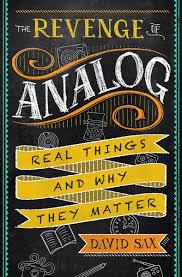
On New Years Day I mentioned getting mastery over our technology lest it masters us as a good resolution for 2018. I am far from being the first one to mention this either generally or in the context of New Years resolutions. In fact, there appears to be a growing concern with the way technology is augmenting the world as we know it.
It may sound extreme, but how we engage technology might be the single biggest issue the church needs to consider. In part that shouldn’t be surprising. Between rampant pornography use and the sheer percentage of the population that has access to it through smartphones, tablets, and computers, technology in the Christian worldview has to be toward the top of the list of topics that need significant reflection.
But the issue of technology goes beyond pornography and Ashley Madison (clear violations of Christian teaching on marital fidelity and sexual lust). Consider how social media has challenged our understanding of identity, loving our neighbor, speaking truth, and being content. In one sense the easy response to these issues is to point out that their proliferation among Christians is the result of either poor teaching in churches or faulty discipleship. To a certain extent I agree. Churches are increasingly worldly. They look more and more like the culture that surrounds them and much of this has to do with uncritical acceptance of the artifacts and philosophies of our culture. Churches may use social media and see good come from it, but are the leaders having conversations about social media with the congregation? We, as individuals, are constantly trying to hide arenas of our lives from Jesus’s call to surrender. There needs to be a realization that technology is not neutral, it too must come under the banner of discipleship. Unless we seek to submit our tech use to Jesus, we will submit ourselves to it. Influential Christian leader Andy Crouch writes:
But almost anything is better than letting technology overwhelm us with its default settings, taking over our lives and stunting our growth in the ways that really matter… If there’s one thing I’ve discovered about technology, it’s that it doesn’t stay in its proper place on its own; much like my children’s toys and stuffed creatures and minor treasures, it finds its way underfoot all over the house and all over our lives. If we aren’t intentional and careful, we’ll end up with a quite extraordinary mess.
-Crouch, The Tech-wise Family
 Technology is a gift, but in the world after Genesis 3 everything is subject to what one of my seminary teachers called theological thermodynamics—all things tend toward disorder, sin, and self-destruction.
Technology is a gift, but in the world after Genesis 3 everything is subject to what one of my seminary teachers called theological thermodynamics—all things tend toward disorder, sin, and self-destruction.
While we may be tempted to think increasing our will power is the secret to harnessing technology, we should take note of the increasing number of voices expressing concern over technology. A notable example is Bianca Bosker’s article in The Atlantic on Tristan Harris. As Bosker reports, Tristan Harris is “a former product philosopher at Google”. I am not exactly sure what a product philosopher is, but in Harris’s case it seems to have had some relationship to thinking ethically about products and their effects on consumers. In his post-Google days Harris has made a name for himself by challenging the morality of the technological products being produced.
While some blame our collective tech addiction on personal failings, like weak willpower, Harris points a finger at the software itself. That itch to glance at our phone is a natural reaction to apps and websites engineered to get us scrolling as frequently as possible. The attention economy, which showers profits on companies that seize our focus, has kicked off what Harris calls a “race to the bottom of the brain stem.” “You could say that it’s my responsibility” to exert self-control when it comes to digital usage, he explains, “but that’s not acknowledging that there’s a thousand people on the other side of the screen whose job is to break down whatever responsibility I can maintain.” In short, we’ve lost control of our relationship with technology because technology has become better at controlling us.
Harris might sound a bit paranoid, but read the article. It isn’t a jump from programming apps with an eye to human psychology to accusations of intentionally creating addictive products. That is explicitly in Harris’s experience. He isn’t alone in his concerns, in fact Adam Alter in Irresistible: The Rise of Addictive Technology and the Business of Keeping Us Hooked, professor of marketing and psychology at New York University, writes:
In late 2010, Jobs told New York Times journalist Nick Bilton that his children had never used the iPad. “We limit how much technology our kids use in the home.” Bilton discovered that other tech giants imposed similar restrictions. Chris Anderson, the former editor of Wired, enforced strict time limits on every device in his home, “because we have seen the dangers of technology firsthand.” His five children were never allowed to use screens in their bedrooms. Evan Williams, a founder of Blogger, Twitter, and Medium, bought hundreds of books for his two young sons, but refused to give them an iPad. And Lesley Gold, the founder of an analytics company, imposed a strict no- screen- time- during- the- week rule on her kids. She softened her stance only when they needed computers for schoolwork. Walter Isaacson, who ate dinner with the Jobs family while researching his biography of Steve Jobs, told Bilton that, “No one ever pulled out an iPad or computer. The kids did not seem addicted at all to devices.” It seemed as if the people producing tech products were following the cardinal rule of drug dealing: never get high on your own supply… Why are the world’s greatest public technocrats also its greatest private technophobes? Can you imagine the outcry if religious leaders refused to let their children practice religion?
-Alter, Irresistible
Consider that closing question. “Why are the world’s greatest public technocrats also its greatest private technophobes?” And what about Alter’s explicit reference to drug dealing, “It seemed as if the people producing tech products were following the cardinal rule of drug dealing: never get high on your own supply.” Will power plays a role for technology use, but it is much more about wisdom in our approach to technology. Thus Crouch uses the phrase “default settings”.
Christians need to be mindful about how they approach technology and often need to do the hard work of placing intentional limits on technology at the very outset. My wife and I have figured out how hard this is on a number of occasions. For the sake of productivity and out of the desire to live above reproach, I have never owned a smart phone or tablet that did not have significant restrictions on it. Restrictions to which only my wife held the passcode. No Appstore, no social media, no web browser, and content level restrictions. This might seem overly restrictive to some who see their phones and iPads as a marker of their freedom, but in fact these limitations and restrictions are in place to enable greater freedom for my wife and I in other areas. As a side note, I have never found myself significantly hampered by my lack of immediate and instantaneous access to that which I do not have access to.
Parents must be especially cautious. Leaving a distinctly Christian worldview and lifestyle out of the conversation for a minute, Jean M. Twinge wrote in The Atlantic last September her concern that we have ruined a generation with smart phones. Twinge says:
The advent of the smartphone and its cousin the tablet was followed quickly by hand-wringing about the deleterious effects of “screen time.” But the impact of these devices has not been fully appreciated, and goes far beyond the usual concerns about curtailed attention spans. The arrival of the smartphone has radically changed every aspect of teenagers’ lives, from the nature of their social interactions to their mental health. These changes have affected young people in every corner of the nation and in every type of household. The trends appear among teens poor and rich; of every ethnic background; in cities, suburbs, and small towns. Where there are cell towers, there are teens living their lives on their smartphone.
What are these unappreciated changes? “Rates of teen depression and suicide have skyrocketed since 2011. It’s not an exaggeration to describe iGen as being on the brink of the worst mental-health crisis in decades. Much of this deterioration can be traced to their phones.” That is absolutely terrifying. That is without the conversation of sin and holiness, discipleship and the great commission. What if the standard is not secular social science and societal health, but to ‘love the Lord, your God, with all your heart soul mind and strength, and to love your neighbor as yourself’?
 As ever a secularized world, one that seems to look for technological saviors, begins to see issues with technology there is a trend back to a sort of old school aesthetic. Thus author David Sax discusses products like the Moleskin notebook in his book The Revenge of Analog. This move toward analog products is enough though. We need to develop a critical theology of technology. We need to think about how the Christian worldview speaks to our use of technology both in terms of granting us liberty and in drawing boundaries. But most important, we need to think about how technology might be counter-forming us.
As ever a secularized world, one that seems to look for technological saviors, begins to see issues with technology there is a trend back to a sort of old school aesthetic. Thus author David Sax discusses products like the Moleskin notebook in his book The Revenge of Analog. This move toward analog products is enough though. We need to develop a critical theology of technology. We need to think about how the Christian worldview speaks to our use of technology both in terms of granting us liberty and in drawing boundaries. But most important, we need to think about how technology might be counter-forming us.
This is the point of Crouch’s The Tech-Wise Family. Crouch looks at the work of James K.A. Smith on cultural liturgies and applies it to our use of technology, specifically technology in the home. By way of summery we might simply ask ‘how do you start your days?’ and ‘how integral is your smart phone to the process?’ I will leave it to Crouch and Smith to convince you that such actions are creating formative habits that make you who you are. And simply ask, what if reaching for your smartphone when you are bored, or grabbing your phone first thing in the morning, or passing time with the endless scroll of a twitter feed is making you certain type of person?
There is much more to be said, but I have run out of time. I will pick this thread up later. Thanks for reading,
t.d.h.
Cultural Liturgies –
Advertisements Share this:




